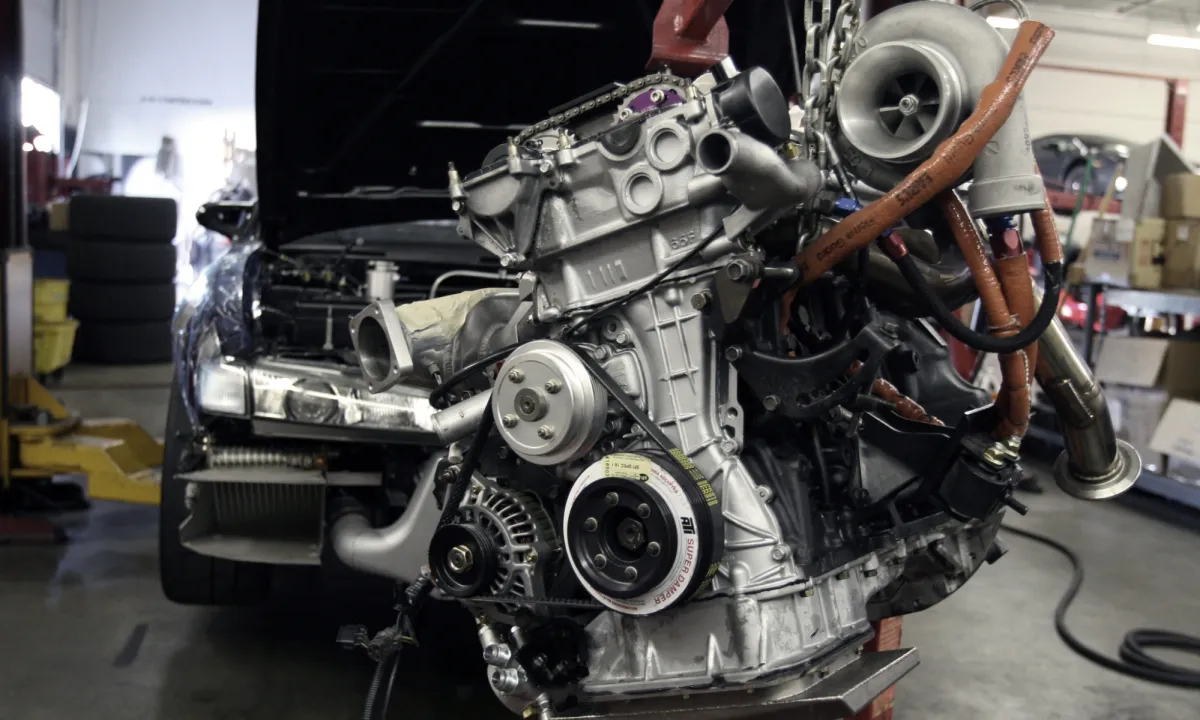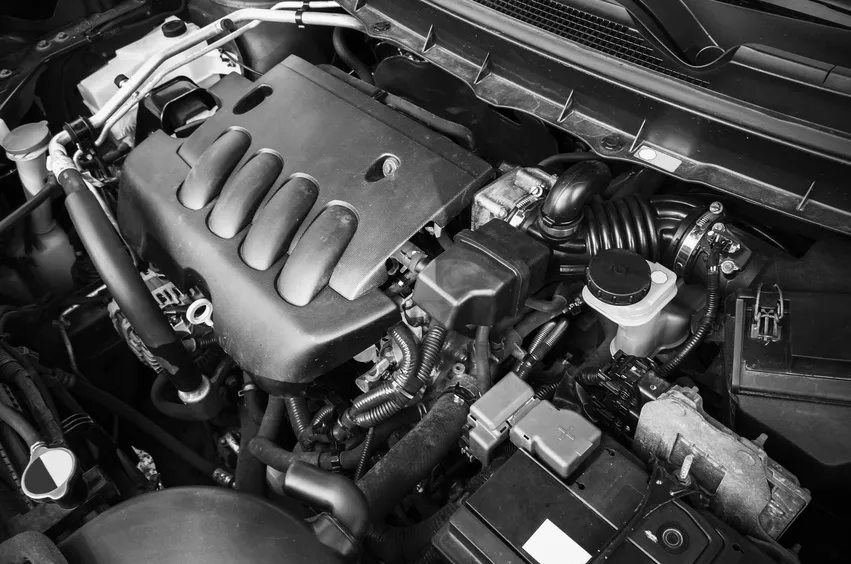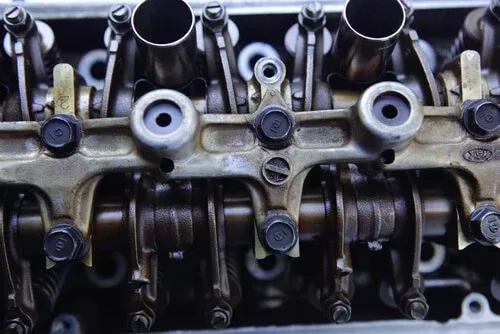Mon - Fri: 8am - 5pm, Sat - Sun: Closed

6-36 Month Warranties
We Ship Local.
Hablamos Español.
Connect with
5 Tips on Buying Used Engines
5 Tips on Buying Used Engines
Used Engines
Things You Must Know Before Buying a Used Engine
In the realm of automotive solutions, buying used engines has become an increasingly popular choice for many. Whether driven by budgetary constraints, environmental considerations, or the allure of vintage vehicles, the demand for used engines is on the rise.
However, navigating this market requires a blend of knowledge and caution. With terms like "low mileage" and "quality used engines" frequently thrown around, how does one ensure they're making the right choice? This guide aims to equip you with essential tips for buying used engines, ensuring you get the best value, performance, and longevity for your investment.

Used Engines
Things You Must Know Before Buying a Used Engine

In the realm of automotive solutions, buying used engines has become an increasingly popular choice for many. Whether driven by budgetary constraints, environmental considerations, or the allure of vintage vehicles, the demand for used engines is on the rise.
However, navigating this market requires a blend of knowledge and caution. With terms like "low mileage" and "quality used engines" frequently thrown around, how does one ensure they're making the right choice? This guide aims to equip you with essential tips for buying used engines, ensuring you get the best value, performance, and longevity for your investment.
Understand Your Used Engine Needs
Before diving into the world of used engines, it's paramount to have a clear understanding of your specific requirements. Start by identifying the exact engine type and model compatible with your vehicle.
Every vehicle has unique specifications, and mismatched engines can lead to performance issues or even damage. Research your vehicle's make, model, and year to pinpoint the engine variants it supports. Additionally, consider your driving habits and needs.
Are you looking for an engine that supports long-distance travel, city commuting, or perhaps off-road adventures? Understanding these nuances can guide your decision-making. It's also wise to set a budget beforehand.
While used engines offer cost savings, prices can vary based on factors like mileage, condition, and brand reputation. By defining your needs and budget from the outset, you streamline your search, ensuring a smoother buying experience and a more suitable engine choice.
Prioritize Low Mileage Used Engines

One of the most telling indicators of a used engine's condition and potential lifespan is its mileage. Often, a low mileage used engine is synonymous with less wear and tear, suggesting that the engine hasn't been overworked. Generally, engines with fewer miles are more likely to have a longer operational life ahead, offering better value for your investment.
However, mileage shouldn't be viewed in isolation. It's essential to consider how those miles were accumulated. An engine with highway miles, where the vehicle cruises at consistent speeds, might be in better shape than one with equivalent city miles, characterized by frequent stops and starts.
Additionally, while low mileage is a significant factor, it's crucial to balance it with the engine's age. An older engine with surprisingly low miles might indicate prolonged periods of inactivity, which can lead to issues like seal drying or fluid degradation.
Lastly, always verify the authenticity of the mileage claim. Unscrupulous sellers might tamper with odometer readings. Request documentation or service records that can validate the stated mileage.
In essence, while low mileage is a desirable trait, it's vital to approach it with a discerning eye, considering the broader context and ensuring its authenticity.
Be Through When Checking Quality and Reliability
When it comes to buying used engines, the adage "you get what you pay for" often holds true. While cost savings are a significant advantage, compromising on quality can lead to expensive repairs down the line. Therefore, it's crucial to prioritize quality used engines in your search. But how do you gauge quality?
Consider the reputation of the seller or the platform from which you're buying. Reputable dealers often provide some form of warranty or guarantee, offering peace of mind regarding the engine's functionality and longevity. Reviews and testimonials can also offer valuable insights into the seller's credibility and the quality of their products.
Inquire about any certifications the engine may have. Certifications from recognized automotive organizations can serve as a stamp of quality, indicating that the engine meets specific performance and safety standards.
Another aspect to consider is the engine's history. Ask for details about previous repairs, maintenance schedules, and any significant issues the engine may have faced. A well-maintained engine is more likely to be reliable and long-lasting.
Lastly, if possible, have the engine inspected by a trusted mechanic. A professional's opinion can provide an additional layer of assurance, helping you make an informed decision.
In summary, ensuring quality and reliability requires a multi-faceted approach, combining research, professional advice, and due diligence.
Ask for Documentation and Service Records of Used Engines

One often-overlooked but crucial aspect of buying a used engine is the importance of proper documentation and service records. These papers serve as the engine's "health record," providing insights into its maintenance history, previous ownership, and overall condition. Always ask the seller for these documents before finalizing your purchase.
Service records can reveal important details like the frequency of oil changes, part replacements, and any major repairs the engine has undergone. This information can help you assess the engine's reliability and what kind of maintenance it may require in the future.
Documentation should also include any warranties or guarantees, which can offer additional peace of mind. Make sure to read the fine print to understand what is covered and for how long. If the seller is unable to provide these documents or is hesitant to share them, consider it a red flag. Lack of proper documentation can indicate potential issues and may even question the legality of the sale.
In summary, proper documentation and service records are not just paperwork; they are essential tools for making an informed decision when buying a used engine.
Navigating the market for used engines can be a complex endeavor, but armed with the right knowledge, it becomes a journey worth taking. From understanding your specific needs and prioritizing low mileage to ensuring quality and scrutinizing documentation, each step is crucial in making an informed decision.
The benefits of opting for a used engine—cost savings, sustainability, and the joy of reviving a beloved vehicle—are significant. However, these advantages are best enjoyed when your purchase is backed by thorough research and due diligence.
Whether you're an automotive enthusiast or someone looking for a budget-friendly solution, these tips for buying used engines serve as a comprehensive guide to securing value, performance, and peace of mind.
Get our latest news and promos
QUALITY ASSURED


SATISFACTION GUARANTEED

UNPARALLELED SUPPORT
Houston Engines
Proud Member



Social Media
Payments Accepted
Ship Via











